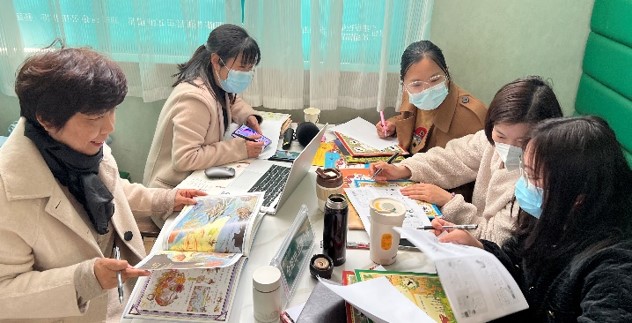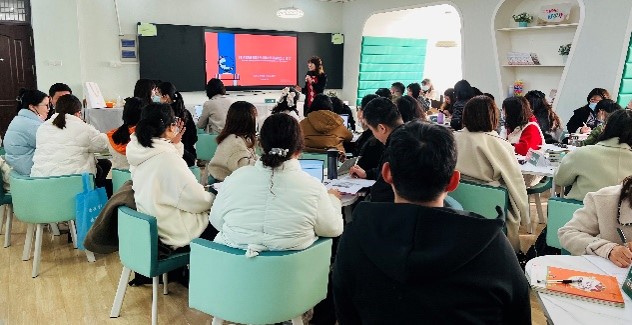"Read to Learn" Pilot Project - Reading Literacy and Reading Comprehension Strategies Workshops I
March 2023

The digital age is driving drastic changes in the way we read and learn, and learners also need to be transformed into active information holders and knowledge builders. It is important for teachers to have good reading instruction skills in order to be able to adapt to changes in students' reading needs, to develop students' reading skills, and to help them acquire and use information.
In order to improve teachers' reading literacy and professional skills in teaching reading comprehension strategies, the Foundation will organize workshops on reading literacy and reading comprehension strategies. The workshops will review and discuss case studies of reading strategies through the combination of "My Library Curriculum" which was developed by the Alliance Schools, guide teachers to integrate reading strategies into the school’s subject curriculum standards, and finally support teachers to complete the literacy-focused curriculum design. There are 5 modules in the workshops:
Module 1 – Making inferences
Module 2 – Asking Questions
Module 3 – Summarizing
Module 4 – Monitoring comprehension
Module 5 – Curriculum Design
The First Module Workshop
The first workshop was held from March 4th to 5th, 2023. We had 65 teachers from 13 schools participating in the workshop. The discussion was led by Ms. Lin Xinru, the head teacher of interdisciplinary curriculum at Yungu Primary School in Hangzhou, Zhejiang Province. At the beginning of the course, she explained to the attendees what the concept of reading literacy. This was supported by a list of commonly used strategies, such as summary, story structure, mind mapping, questioning, determining the focus of the article, inference, stimulating prior knowledge and understanding monitoring, etc. Ms. Lin systematically explained the use of inference strategies by citing different cases and different types of texts. The next step is to integrate the method into the curriculum design guided by reading literacy.
The recommendation is that designing different reading literacy curriculum themes should include the following elements: 1. Content (library curriculum, fiction/non-fiction); 2. Connection (learning content, learning quality); 3. Context (components, thinking process, and methods); 4. Creation. Taking reading biographies as an example, the lecturer demonstrated the reading literacy-oriented curriculum design method and the implementation steps of the connection between texts and individuals, texts and the world, and texts and other texts. Finally, how to evaluate the reading literacy curriculum is introduced.
After the workshop, we received feedback from teachers that they had a clear understanding of reading comprehension strategies and reading comprehension courses and learned how to design course integrated inference strategies. However, as it is the first time to participate in learning how to integrate reading comprehension into the course, some teachers still have difficulties in learning content, which also provides an adjustment direction for the arrangement of course content in the future.


 30/F,
40 Wyndham Street, Hong Kong
30/F,
40 Wyndham Street, Hong Kong (852) 3167 4198
(852) 3167 4198
